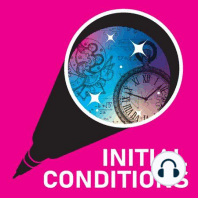2 min listen

Energy Crises and Climate Change in the 1970s
Energy Crises and Climate Change in the 1970s
ratings:
Length:
46 minutes
Released:
Aug 4, 2022
Format:
Podcast episode
Description
This episode describes efforts undertaken by the Department of Energy in the late 1970s to study the environmental, economic, and social consequences of anthropogenic climate change. In the early 1970s, President Richard Nixon confronted a series of energy crises. Blackouts in major U.S. cities, natural gas shortages, and the 1973 OPEC oil embargo led to cold winters, hot summers, and long lines at the pump. In response, Nixon began reorganizing the executive branch to better respond to such crises, an effort that would continue during the terms of his successors Gerald Ford and Jimmy Carter. One proposal that Nixon’s new energy advisors suggested was to burn more domestic coal and oil. Meteorologists, atmospheric scientists, oceanographers, and scientists in related fields paid close attention to these new energy policies. Some, including William P. Elliott, then working in the Air Resources Laboratory at the National Oceanic and Atmospheric Administration, responded with alarm. Based on the papers of William P. Elliott, this episode covers federal research efforts on anthropogenic climate change during the Carter administration. A handful of scientists began organizing a research program within the new Department of Energy to study the consequences of relying on more fossil fuels. That is, until the sudden closure of that program in 1981. We’ll also discuss how debates about climate change from nearly fifty years ago still resonate today.
Released:
Aug 4, 2022
Format:
Podcast episode
Titles in the series (15)
Trailer by Initial Conditions: A Physics History Podcast